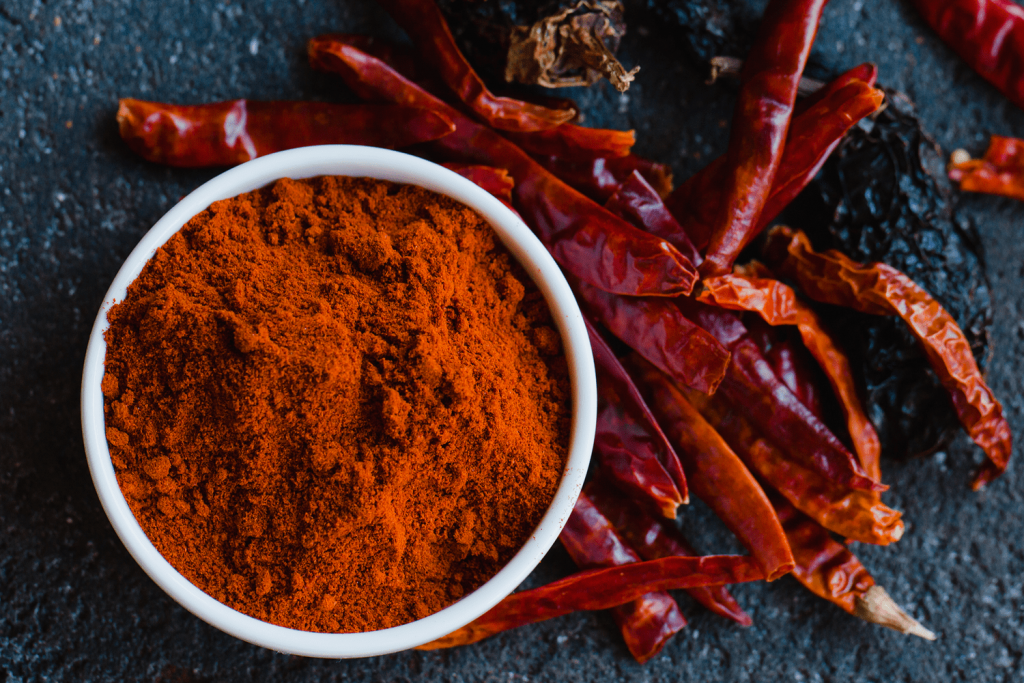Cayenne pepper is more than just a fiery spice—it’s a nutritional powerhouse that has fascinated cultures around the world for centuries. In fact, nearly one in four households in the United States keeps cayenne pepper in the pantry, whether for cooking, home remedies, or even wellness tonics. But here’s the real question: what actually happens when you eat cayenne pepper every single day? Is it a superfood that boosts your health, or can it cause hidden problems you should worry about?
Science has revealed that cayenne pepper, rich in capsaicin, can influence everything from your metabolism and circulation to digestion and even pain perception. Yet like many natural remedies, the benefits and risks depend heavily on how much you consume and your personal health condition.
In this article, we’ll take a balanced, evidence-based look at what happens to your body when cayenne pepper becomes part of your daily routine. You’ll learn the potential health benefits, the possible downsides, and smart ways to include it in your diet safely. By the end, you’ll know whether this fiery spice is your ally—or a risk you need to rethink.

Why Cayenne Pepper Stands Out
Unlike ordinary spices, cayenne contains capsaicin, a compound responsible for its signature heat. Capsaicin interacts with pain receptors, stimulates circulation, and may influence metabolism. Cayenne is also rich in vitamins A, C, E, and B6, as well as potassium and manganese. These nutrients make it more than just a flavor enhancer.
Still, the “daily dose” question matters. A pinch sprinkled over your food is different from taking concentrated cayenne supplements. Let’s explore what happens to your body when cayenne pepper becomes a daily habit.
The Potential Benefits of Eating Cayenne Pepper Daily
1. Boosts Metabolism and May Support Weight Goals
Capsaicin has been studied for its thermogenic effect, meaning it can slightly increase calorie burning. Some research shows it may also reduce appetite. For example, in one study, participants who added cayenne to their meals consumed fewer calories later in the day.

2. Supports Digestive Health in Small Amounts
Traditionally, cayenne has been used to stimulate digestive enzymes and stomach acid, potentially aiding nutrient absorption. For people with sluggish digestion, a small amount might help food move more efficiently.
3. Improves Circulation and Heart Health
Cayenne pepper has been linked to improved blood flow. Capsaicin may help relax blood vessels, reducing blood pressure in some individuals. Its antioxidant content also supports cardiovascular function.
4. Provides Natural Pain Relief
Interestingly, the same fiery compound that makes cayenne burn can also relieve pain. Capsaicin creams are often used topically for joint pain, nerve pain, and arthritis. Eating cayenne may have milder internal effects that contribute to this.

5. Strengthens Immunity
With vitamin C, beta-carotene, and antioxidants, cayenne supports immune defenses. During cold and flu season, a spicy soup with cayenne may offer more than just comfort—it can give your body an immune-friendly boost.
The Possible Risks of Daily Cayenne Pepper
1. Stomach Irritation and Acid Reflux
For sensitive individuals, daily cayenne may worsen acid reflux, heartburn, or gastritis. Too much spice can irritate the stomach lining, especially when eaten on an empty stomach.
2. Digestive Discomfort
Large doses may cause cramps, diarrhea, or nausea. What helps one person’s digestion can upset another’s, highlighting the need for moderation.

3. Interactions with Medications
Cayenne can interact with blood-thinning drugs, ACE inhibitors, or aspirin, potentially increasing the risk of side effects. Always consult your doctor if you’re on medication and considering cayenne as a supplement.
4. Increased Sensitivity Over Time
Ironically, daily high doses of cayenne may dull your taste buds’ response or make you more sensitive to spice-related discomfort.
Real-Life Experiences
Consider Maria, a 42-year-old yoga instructor who started adding a pinch of cayenne to her morning lemon water. She reported feeling more energized and noticed her digestion improved. On the other hand, James, a college student who tried cayenne capsules daily, experienced stomach cramps and had to stop.
These examples highlight the importance of context: a small amount in food may benefit many people, while concentrated supplements can cause issues if overused.
Practical Ways to Add Cayenne Pepper Safely
- Sprinkle a small pinch over scrambled eggs or roasted vegetables.
- Add a dash to soups, stews, or chili for warmth and depth.
- Mix a little with lemon and honey in warm water as a morning tonic.
- Combine with turmeric and ginger for an anti-inflammatory tea.
Moderation is key. Start with just a pinch, monitor your body’s response, and adjust accordingly.

Quick Reference Table: Benefits and Risks of Daily Cayenne
| Effect | What Happens | Safe Practice |
|---|---|---|
| Metabolism Boost | Slight increase in calorie burning | Pinch daily in meals |
| Digestive Aid | Stimulates enzymes in small doses | Avoid large amounts |
| Circulation Support | May reduce blood pressure | Monitor if on medication |
| Pain Relief | Capsaicin reduces nerve sensitivity | Topical use is safer |
| Immune Boost | Rich in vitamin C and antioxidants | Use in soups and teas |
| Stomach Irritation | Can worsen reflux or gastritis | Avoid on empty stomach |
| Drug Interactions | May affect blood thinners or aspirin | Consult a doctor |
Conclusion
Common Questions
Is cayenne pepper safe to eat every day?
For most healthy adults, small amounts in food are safe, but avoid large doses or supplements without medical advice.
Can cayenne help with weight loss?
It may slightly boost metabolism and reduce appetite, but it’s not a magic solution. A balanced diet and exercise remain essential.
Who should avoid cayenne pepper?
Anyone with ulcers, chronic acid reflux, or those taking certain medications should be cautious and consult their doctor first.
Final Note
Cayenne pepper can be a friend or foe, depending on how you use it. In moderation, it may boost metabolism, circulation, and immunity. Overused, it can irritate your stomach or interact with medications. The key is balance, listening to your body, and seeking professional guidance when in doubt.
This content is for informational purposes only and does not replace professional medical advice. Always consult with your healthcare provider before making dietary or lifestyle changes.




